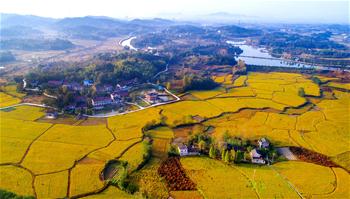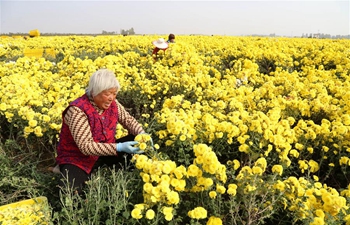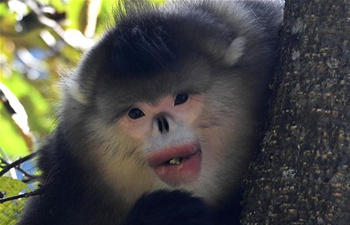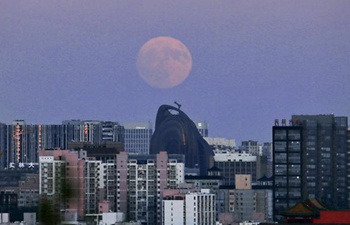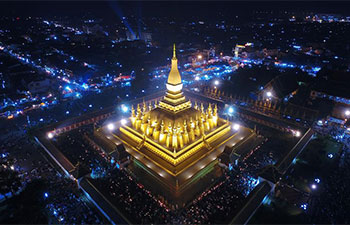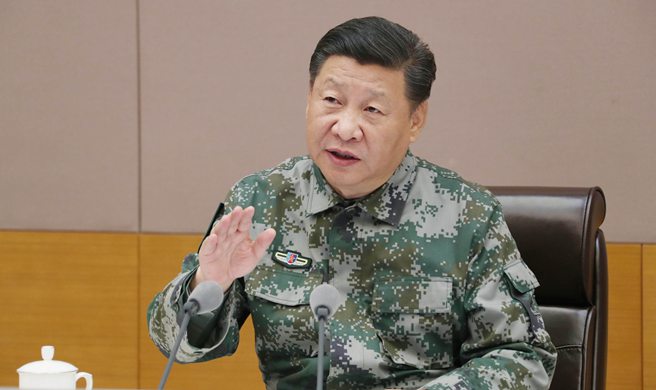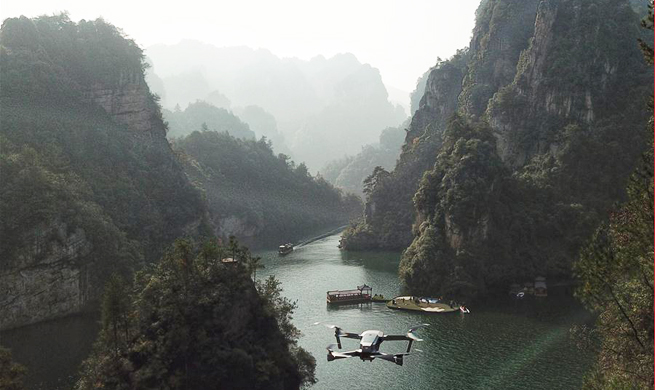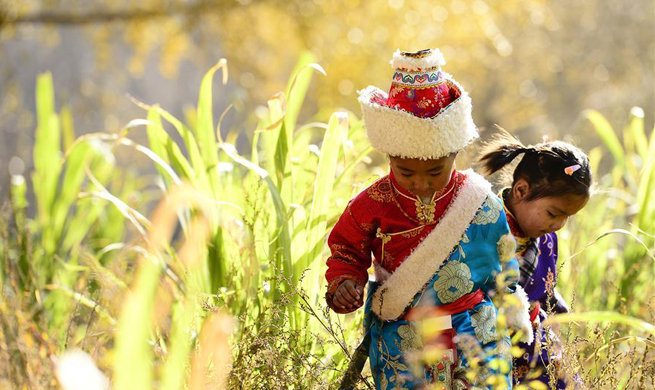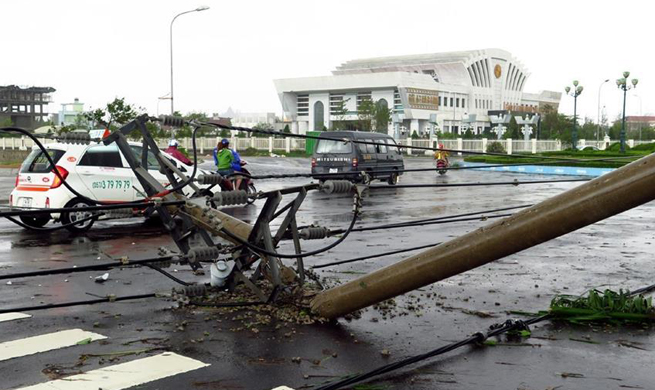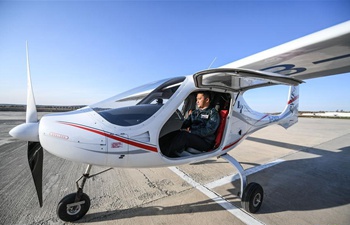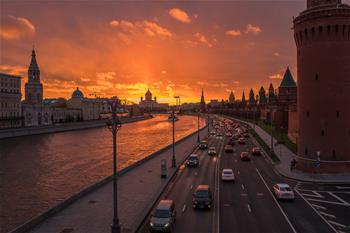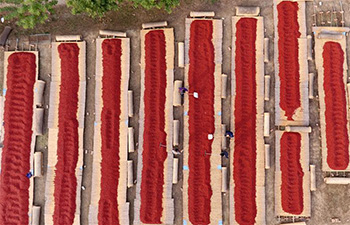by Burak Akinci
ANKARA, Nov. 4 (Xinhua) -- Turkey will explore new markets in Asia to boost its tourism and diversify the sector which is on the path to recovery, the Anadolu News Agency has reported.
"In line of the strategy that we have determined, we aim to become one of the three tourism destinations in the world in the next ten years," said Turkish Culture and Tourism Minister Numan Kurtulmus.
He particularly explained that "long forgotten" countries of the Far East part of the world, namely China, India, South Korea, Japan, Indonesia and Malaysia, will constitute a strategic market for the Turkish tourism.
He reminded that 2018 will be "Year of Turkey Tourism " in China with a variety of 50 events planned. Currently, Turkish Airlines flies to five cities in China and this number is expected to increase, according to officials.
"The rapid growing Chinese population is in search of better quality products and services. Besides cultural tourism, health tourism and golf tourism are becoming very popular among Chinese travelers," told Xinhua Metin Goren, owner of a travel agency based in Istanbul.
"Chinese tourists prefer to spend time on historical and cultural sites and buy luxury goods. We have a great potential for them and we have to offer them services that can attract Asian tourists," he added.
According to official data, Turkey has welcomed 26 million tourists in the first nine months of 2017 and aims to top this number to around 31 million until the end of the year. Turkish tourism players want to host 1 million Chinese travelers in 2018.
Tourism specialists told Xinhua that there especially two top destinations preferred by Chinese tourists in Turkey: Pamukkale in the Aegean province of Denizli , where is located with its iconic white travertine stones, and Cappadocia, historical region in central Anatolia famous for unique geological features called "fairy chimneys."
Turkey's political, economic and cultural relations with China have increased significantly over the past ten years.
The trade volume between the two countries is around 30 billion dollars, making China the biggest country where Turkey imports and second trade partner after Germany.
Turkey went through a bitter year in 2016, suffering a series of bloody of terror attacks, a failed coup attempt in the summer, and a backlash of a series of regional conflicts in Iraq and Syria.
Domestic political tension were also high. As a result, its lucrative tourism sector was severely affected. The tourism revenue declined sharply to 22 billion dollar from 31 billion dollars in 2015, a nearly 30 percent plunge affecting the country's Gross Domestic Product (GDP).
A crisis situation was declared and authorities came up with several ideas aiming to lure foreign visitors to Turkey but also to offer them other alternatives than the traditional sea and sun combo. Supporting boutique hotels instead of five-star hotels and holiday villages was one of them.
For the first time since 2002, a National Tourism Council has convened last week in Ankara with the sectors major players in order to dwell on the sector lingering problems.
The main aim was to define a global strategy in order to host 50 million foreign tourists in Turkey in 2023, the centennial of the Turkish Republic.
"The worst period is behind us. The increase in tourism revenues prove that Turkey is Self-sufficient in tourism and has the immense capability to treat its wounds," stated President Recep Tayyip Erdogan during the Council meeting, highlighting the positive mood in the sector.
"We need a new impetus to our sector. The last Tourism Council was organized in 2002, there have been problems but with a global strategy I think that this vital sector for Turkey can return to its glory days with some mentality changes that can lead to reach the goals set by the government," said Kaan Kavaloglu, tourism coordinator for the Limak Holding, one of Turkey's leading firms.
There is very much room for improvement and the real recovery, until the industry bounces again, it will take time, said on the other hand some members of the industry.
"The government is struggling to do its best to increase the performance of the industry, but it will be arduous and may take several years. I am not optimistic that we will have immediate (positive) results," told Xinhua Selcuk Sarpkaya from a Capadocia-based travel agency.
"The Asian market is a vibrant one, I agree, but it will take time and effort to lure more visitors from this region of the world to Turkey in this context of security fears," while the war in Syria is still waging on, added this experienced tourism expert.
The changing concept of tourism was high on the agenda as leisure or lingering on sunny beaches is no longer the sole purpose of foreign travelers who prefer to experience different type of entertainment, such as art, cuisine, nature and conventions.
Health tourism is also one of the fastest industry to grow in Turkey where tens of thousands foreigners are welcomed each year for various medical treatment. Turkey aims to reach a significant 7 billion dollars in this sector alone this year, according to the Turkish Healthcare Travel Council (THTC).
Turkey generated nearly 6 billion dollars in 2016 from 750.000 health tourists who have chosen it for its low-cost treatment, particularly for physiotherapy, eye surgeries or hair transplants, a treatment which is very popular among Middle Eastern tourists.
Turkey is a pioneer in hair transplants with over 200 procedures carried out daily around clinics across the country, especially Istanbul, the country's most populated city and economic hub.
And travel experts know very well that health and medical tourists spend almost 10 times more than traditional holiday makers. So they offer not only just health services but also thermal and medical spa facilities.
After the loss in the European and Russian markets in 2016, due to terror attacks and a spat with Moscow over the Syrian war which has since been settled, Gulf countries have become the largest tourism market for Turkey, especially the Black Sea coast and Istanbul, famous for being the capital of the Byzantine and Ottoman empires.
Additionally, there's much anticipation and hype revolving around the third international Istanbul airport that should be opened in 2018, one of the biggest of the world.
Officials forecast that it will not only increase tourism but also act as a hub for international travel an business.




